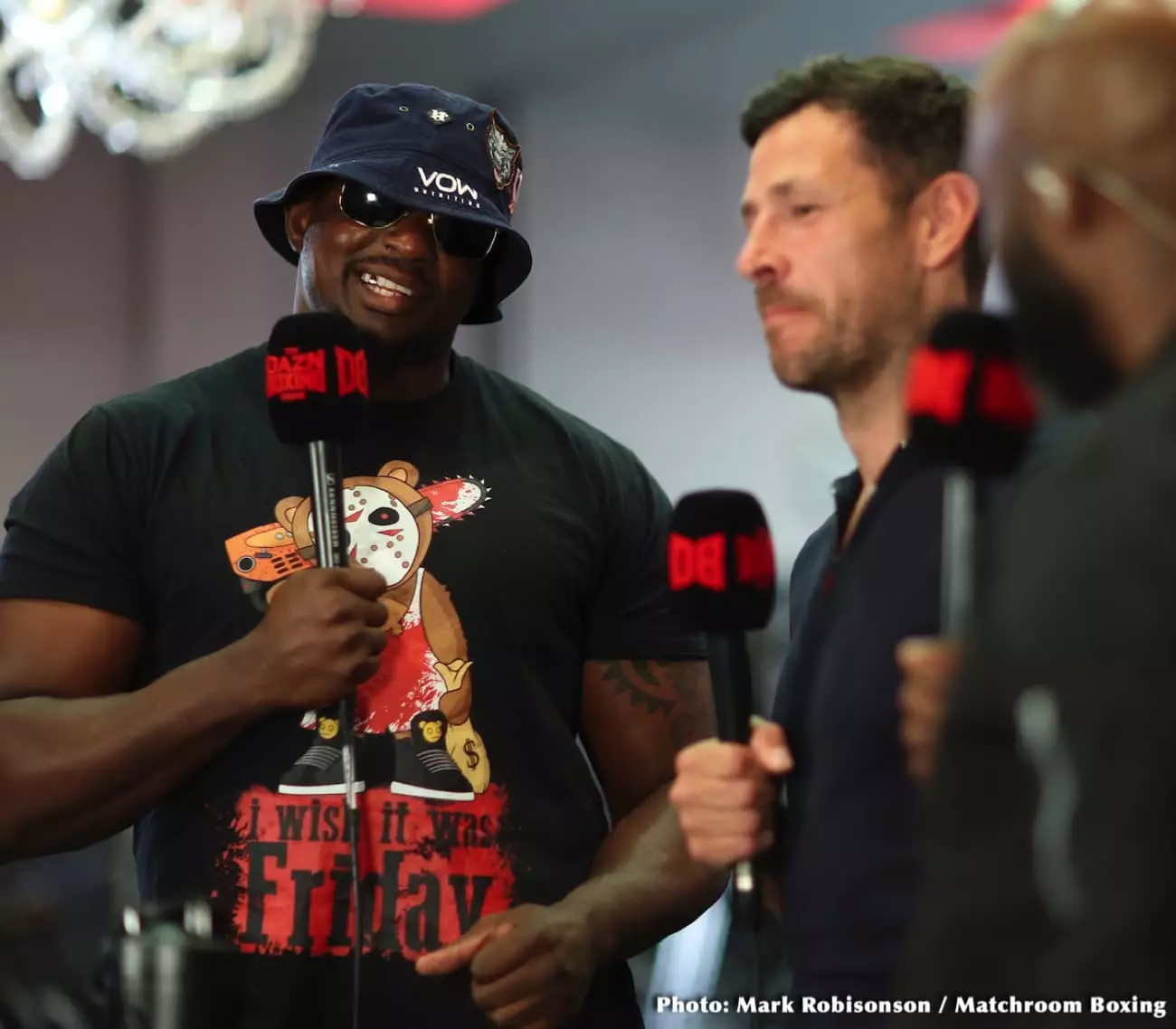Dillian Whyte, the seasoned heavyweight boxer hailing from London, is a candid embodiment of vigor and will, even at the age of 37. Many would argue that his recent performances cast a shadow over his capabilities, yet Whyte firmly believes that his journey in boxing is far from over. Having faced tough battles and experienced both victories and setbacks, he continues to seek participation in the upper echelons of heavyweight boxing. This matches his ambition for meaningful fights against prominent adversaries—an aspiration he openly discussed leading up to the eagerly anticipated showdown between Fabio Wardley and Justis Huni in Ipswich on June 7.
Whyte’s unyielding desire to remain active in the ring is both a testament to his competitive spirit and a strategy to stay relevant. In a sport where youth and form significantly dictate success, Whyte’s insistence on pursuing high-stakes matches can be seen as a double-edged sword. At the core of his ambition lies the fight against New Zealand’s Hemi Ahio, a contender with an imposing record of 24 wins and only a solitary defeat. This matchup could serve not only as a litmus test for Whyte’s current form but also as a critical juncture in defining whether he still commands a spot among boxing’s elite.
Rethinking Legacy Amidst Challenges
Engaging in bouts against prominent names like Anthony Joshua, Joseph Parker, and Deontay Wilder, Whyte has acknowledged the rivalries that weave through his career’s tapestry. They are not merely individuals he wishes to face; they represent unfinished business, emotional investments, and the beating heart of competitive spirit. His rivalry with Joshua, characterized by both animosity and history, is a cornerstone of Whyte’s narrative. Their paths crossed both as amateurs and professionals, and each encounter has left indelible marks on his boxing legacy.
Whyte has expressed a genuine willingness to rematch Joshua, hinting at the complex emotions associated with their past encounters. A clash with Parker also beckons, despite Parker’s recent revitalization as a fighter. However, What remains to be seen is whether these potential matchups resonate with the current landscape of heavyweight boxing. As fighters evolve and boxing narratives unfold, rematches can often become irrelevant if one competitor fails to demonstrate growth. Whyte’s statements may spring from a desire for recognition and relevance, but they also pivot on the pressing question of whether he can reinvent himself in an unforgiving division.
The Heavyweight Gauntlet: Looking Ahead
One of the most pressing concerns surrounding Whyte is whether he can rediscover the form that once made him a formidable contender. His subpar performance against Ebenezer Tetteh raised eyebrows and initiated a wave of skepticism regarding his capacity to deliver against younger or strategically adept opponents. The haunting question remains: how much does Whyte have left to give?
On the surface, his ambition and willingness to fight at any opportunity are commendable. However, if he enters the ring against Ahio with the same sluggishness exhibited during his last bout, he risks not just another loss but further tarnishment of his reputation. The heavyweight division has witnessed the rise of formidable athletes who are both technically sound and physically superior. In such a cutthroat environment, every decision made by Whyte and his camp will be scrutinized intensely.
The reality is that boxing, more than many sports, thrives on narrative arcs—underdogs rising, champions falling, and legacies being built or erased within mere minutes. Whyte’s journey feels like a classic tale of a warrior unyieldingly battling against time. Still, he must squarely face the impending realization that legacy, much like the sport itself, can be fleeting. The next few months could prove to be not just pivotal for his career, but also defining for how future generations remember the once-feared heavyweight warrior known as “The Bodysnatcher.”


Leave a Reply